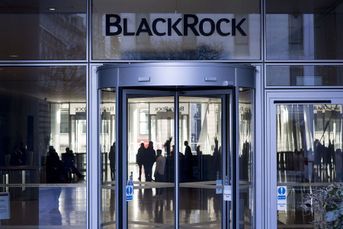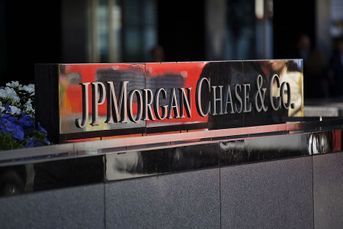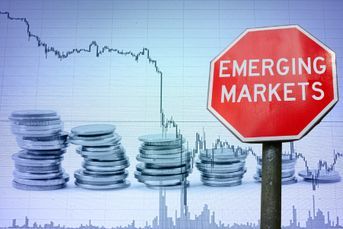Obama finds ally in Bank of America boss
The Obama administration has found a banker it can do business with: Bank of America Corp.'s Brian Moynihan.
The Obama administration has found a banker it can do business with: Bank of America Corp.’s Brian Moynihan.
While many U.S. banks’ chief executive officers publicly oppose at least some elements of President Barack Obama’s plan for financial regulation, Moynihan, 50, is winning White House praise for his stance. He backs a consumer financial protection agency, addresses shortcomings the administration finds with his bank’s home-loan modification program, and pursues small- business initiatives in collaboration with the White House, Bloomberg Businessweek reports in its May 17 issue.
“He has been willing to speak out bravely in his industry on the need for reform measures,” says Valerie Jarrett, Obama’s liaison to corporate America who has met with Moynihan at the White House several times. “And he has been willing to come to Washington and roll up his sleeves and work on the issue.”
One of Moynihan’s assets may be that he is a fresh face. He took over as the bank’s CEO Jan. 1, and unlike his predecessor, Kenneth Lewis, isn’t tainted by public outrage over the $700 billion bailout for banks. Nor has he been targeted by a Securities and Exchange Commission suit — now settled –alleging that investors were misled about bonuses and losses during Bank of America’s 2009 acquisition of Merrill Lynch & Co.
Moynihan, who has also visited Treasury Secretary Timothy Geithner and White House economic adviser Lawrence Summers, has proven that it is possible to please both the administration and shareholders. In April, Charlotte, North Carolina-based Bank of America, the largest U.S. bank, posted first-quarter profit of $3.18 billion, compared with a loss of $194 million in the fourth quarter of last year and a $1 billion loss in the quarter before that.
Moynihan’s strategy is a “complete turnabout” from the Lewis era, says Anton Schutz, who manages $270 million of financial stocks, including shares of Bank of America, at Mendon Capital Advisors Corp. in Rochester, New York.
“It’s really important that he continue to keep the image of Bank of America on the upward trajectory with the administration and with investors,” he says. “If you’re an embattled CEO, it’s going to reflect in your stock price.”
Bank of America’s shares closed at $17.07 yesterday in New York Stock Exchange composite trading, up 13.35 percent since Moynihan took over.
Administration officials say Moynihan’s cooperation has given him a distinctive place among bankers.
Less than a month into his tenure as CEO, Moynihan attended a dinner at the Treasury with Geithner and other administration officials and the heads of several banks, including Bank of New York Mellon Corp., US Bancorp and BB&T Corp. Throughout the Jan. 20 dinner, some executives criticized what they described as the administration’s populist tone toward Wall Street, an attendee says.
Moynihan was more attuned to the public anger toward his industry and called on the group to help restore trust in banks, the attendee says.
“In addition to being an active leader of his bank, he has also expressed a willingness to work with the administration and have a level of corporate responsibility beyond the bank,” Jarrett says. “We appreciate that effort.”
Moynihan, in an April 30 interview with Fox Business Network, said there is a “tough” tone in Washington, though Obama had done “a great job” and is “working hard to try to figure out a solution.”
That praise stands in contrast with comments by JPMorgan Chase & Co.’s CEO, Jamie Dimon. He has visited the White House at least four times in the past seven months, records show, and was largely supportive of the administration’s efforts to rescue the economy last year. As the regulatory overhaul was introduced, he took a more combative stance.
Last June, when Obama previewed his proposal, Dimon warned in the Wall Street Journal against the “pendulum swinging too far.” In January, he criticized Obama’s plan to tax recipients of financial bailout funds that had repaid their loans, saying “using tax policy to punish people is a bad idea.”
Joseph Evangelisti, a spokesman for New York-based JPMorgan, said in an interview, “Jamie Dimon has said publicly that he has no problem with banks paying for bailouts in their own industries, but not for companies in other industries.”
Last month, in a Chicago speech, Dimon said banks support 80 percent of the overhaul plan.
Jarrett dismisses any suggestion of a popularity contest among bankers.
“This isn’t about relationships,” she says. “It’s about issues.”
Thomas Brown, CEO of the New York-based hedge fund Second Curve Capital LLC, said today on Bloomberg Television that he sees Wall Street bankers in two camps when it comes to regulation proposals.
“Two of them have CEOS that are soft, some would call them sort of pansies, with respect to the regulators and the legislators, and those would be Vikram Pandit and Brian Moynihan,” Brown said, referring to New York-based Citigroup Inc.’s leader.
“And then we have two that are standing up to them and try to explain why they think that some of what they’re doing is wrong, and I’m much more of a fan of what Jamie Dimon and John Stumpf are doing,” he said of San Francisco-based Wells Fargo & Co.’s chairman.
Anne Finucane, Bank of America’s chief global strategy and marketing officer, says the cooperative attitude is part of Moynihan’s management style. “I don’t think that Brian’s way of leading a company is to start with a stick in the eye,” she says.
Still, Finucane says Moynihan isn’t on board with all the regulatory proposals. His bank wants any regulation to pre-empt tougher state laws, even on the proposed consumer agency, and he has misgivings about a proposal to restrict derivatives trading by commercial banks, she says.
“There is going to be regulatory reform and while we may not be comfortable with every part of it, I think we know it’s a reality,” Finucane says.
Cooperation with the administration makes business sense for the CEO of a bank that has more than 10 percent of U.S. deposits and about 60 million individual and small-business customers, Finucane says.
“These actions weren’t simply taken to win friends in Washington,” she says. “The industry has experienced a low moment in its reputation, and we are very anxious to get back to business.”
Learn more about reprints and licensing for this article.








